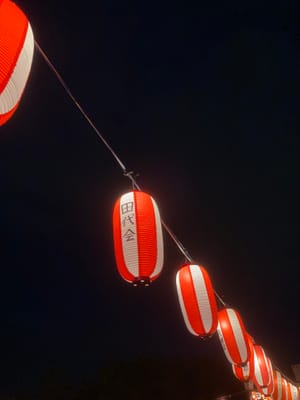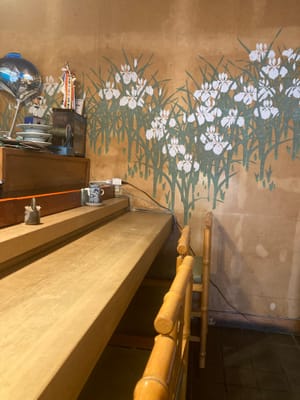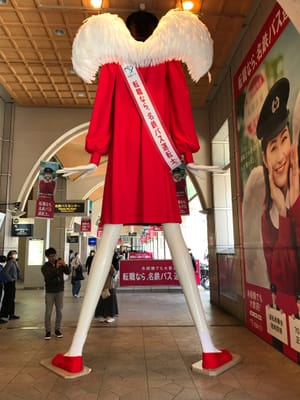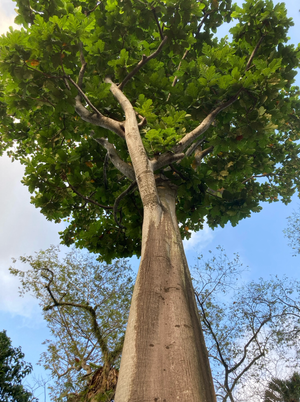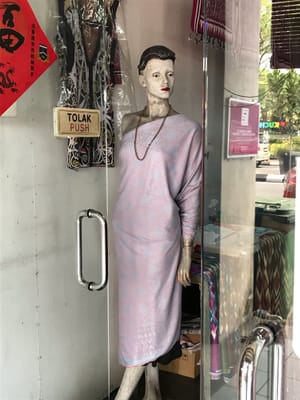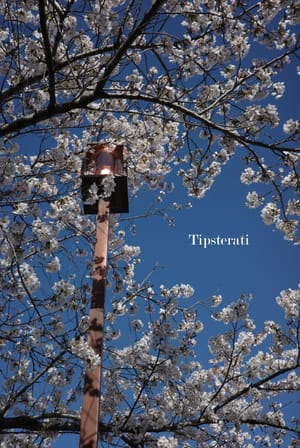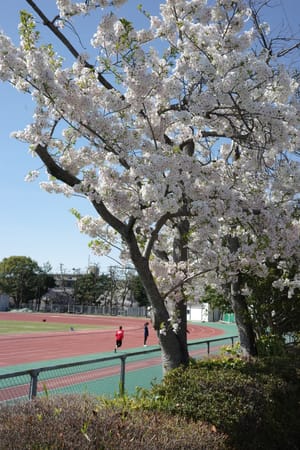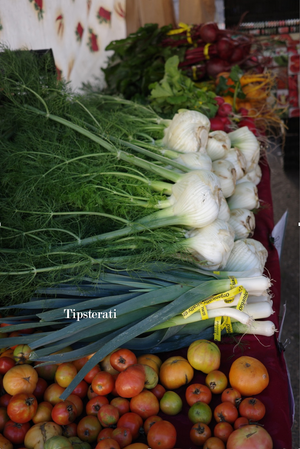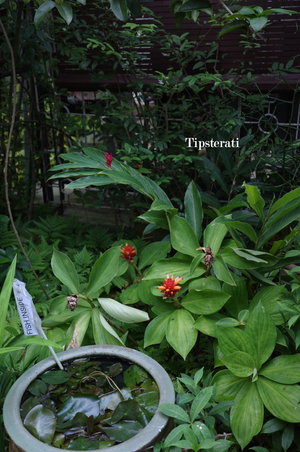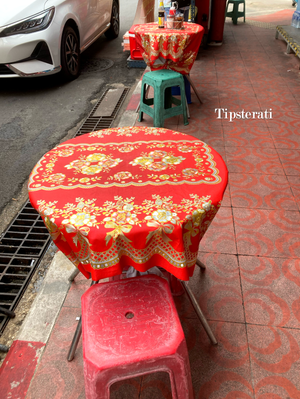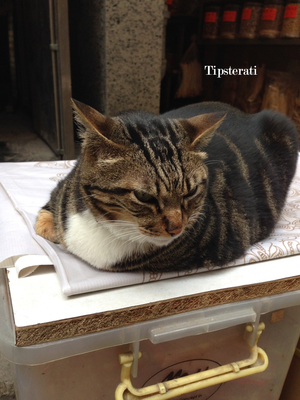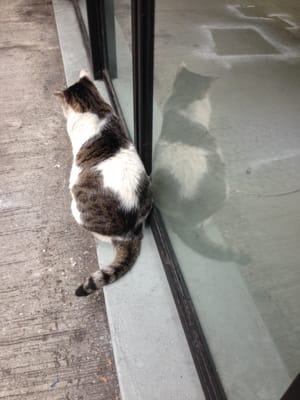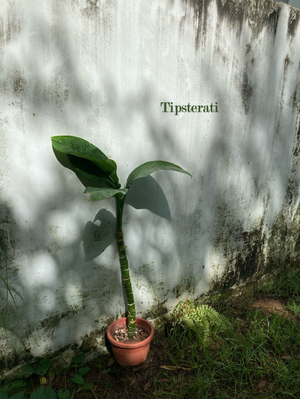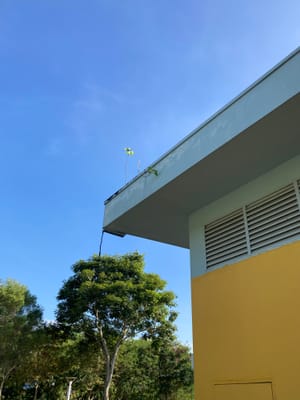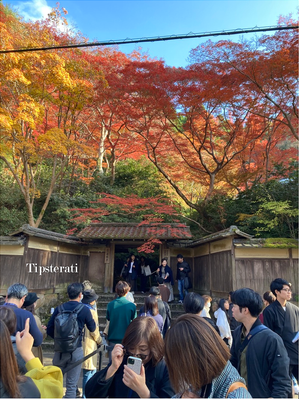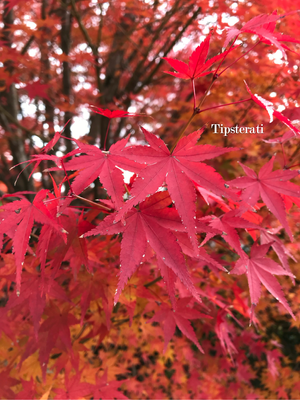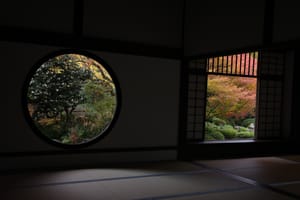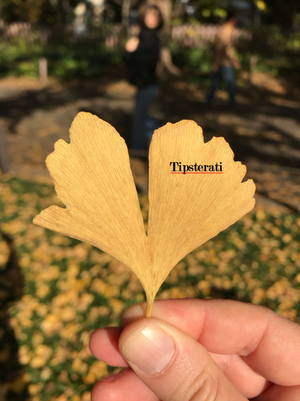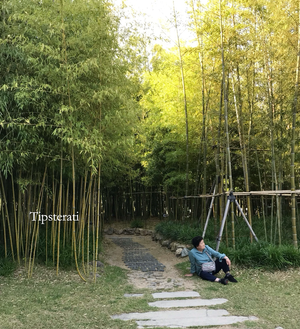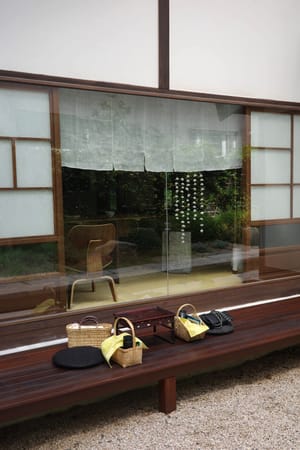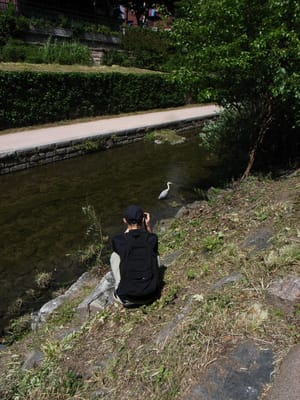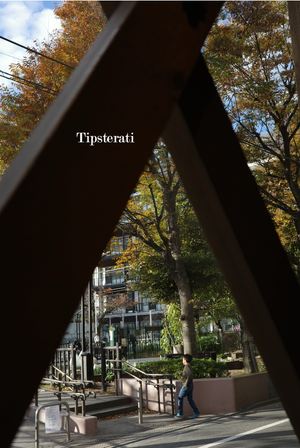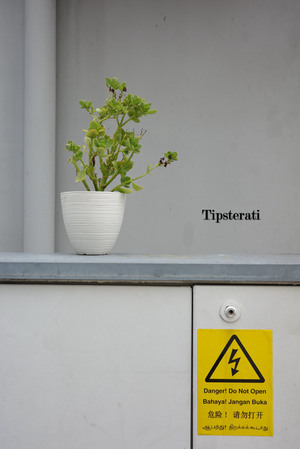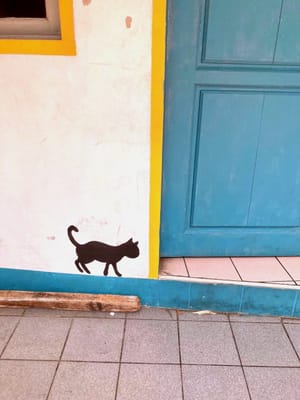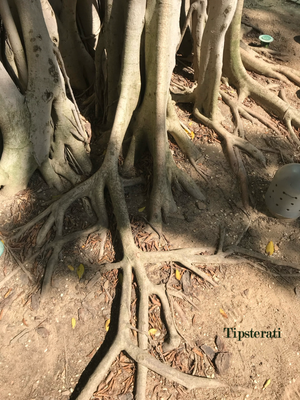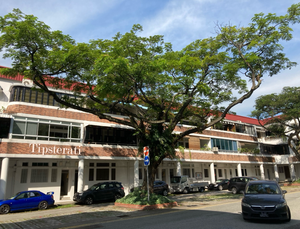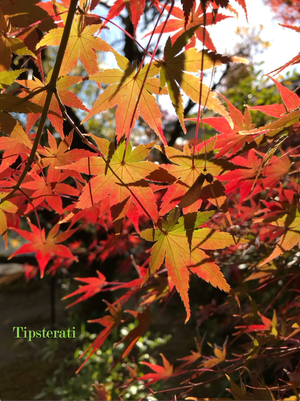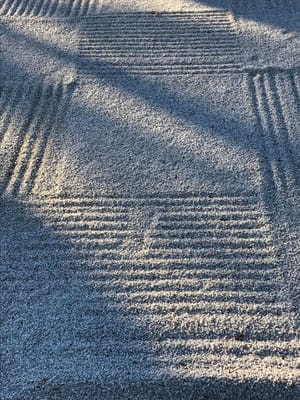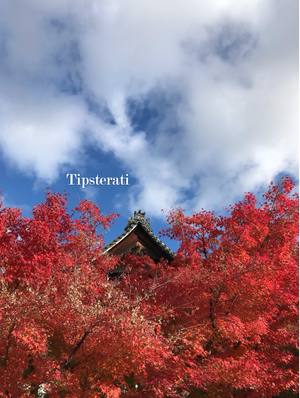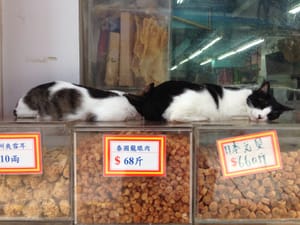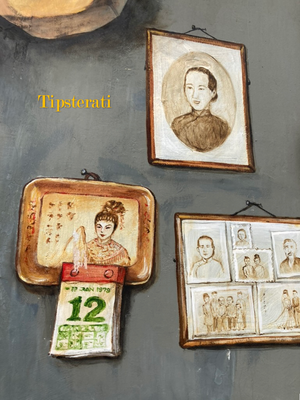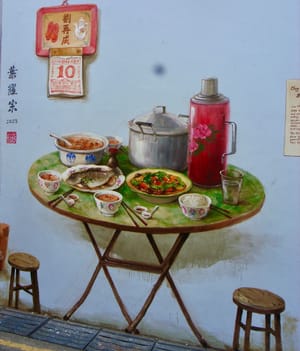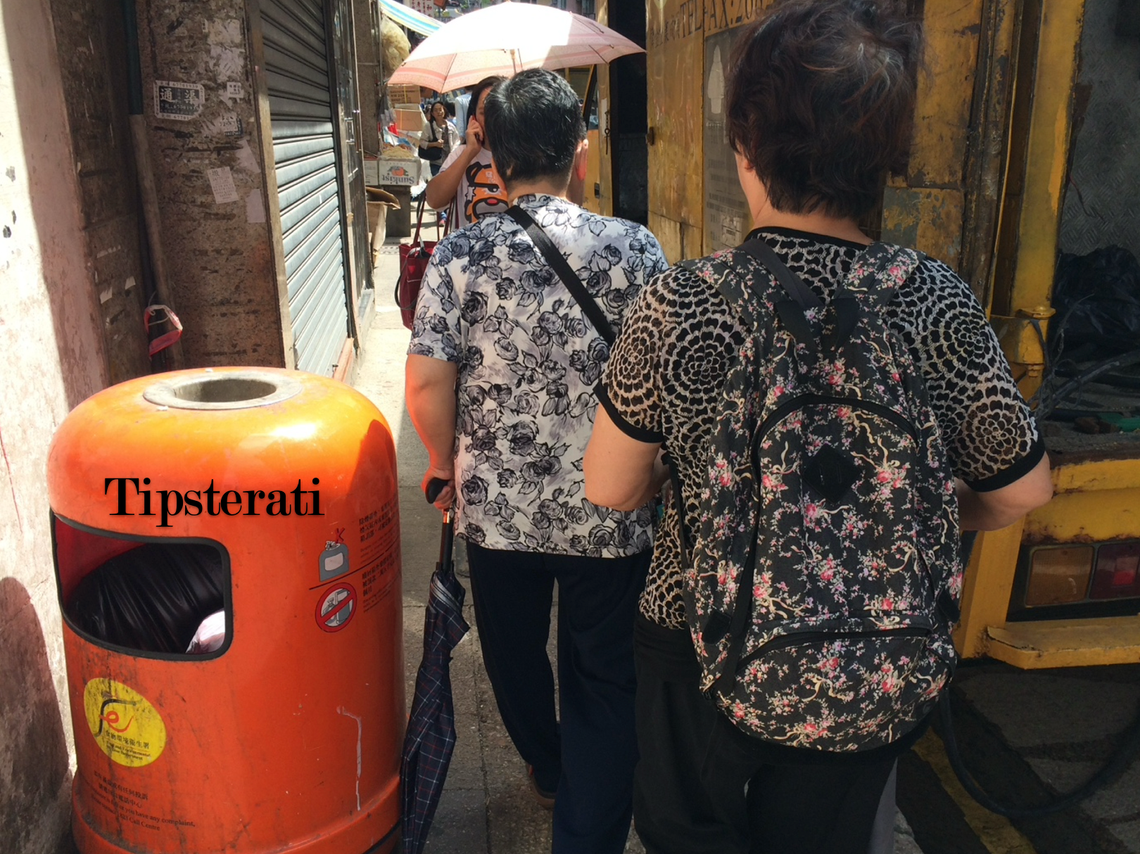
Grannyspotting?
If you, dear Subscriber, were hoping in this installment to find the hottest spots to view the grandmas of Hong Kong parade about in their jazzy, free-and-easy get-ups, I’m afraid you will be let down. Did you really imagine that we would recommend, say, picking up a Hong Kong-style milk tea and, while you sip away, treating the streets as some sort of geriatric fashion show? What kind of maniac would do such a thing? (I refer, of course, to drinking tea with milk.)
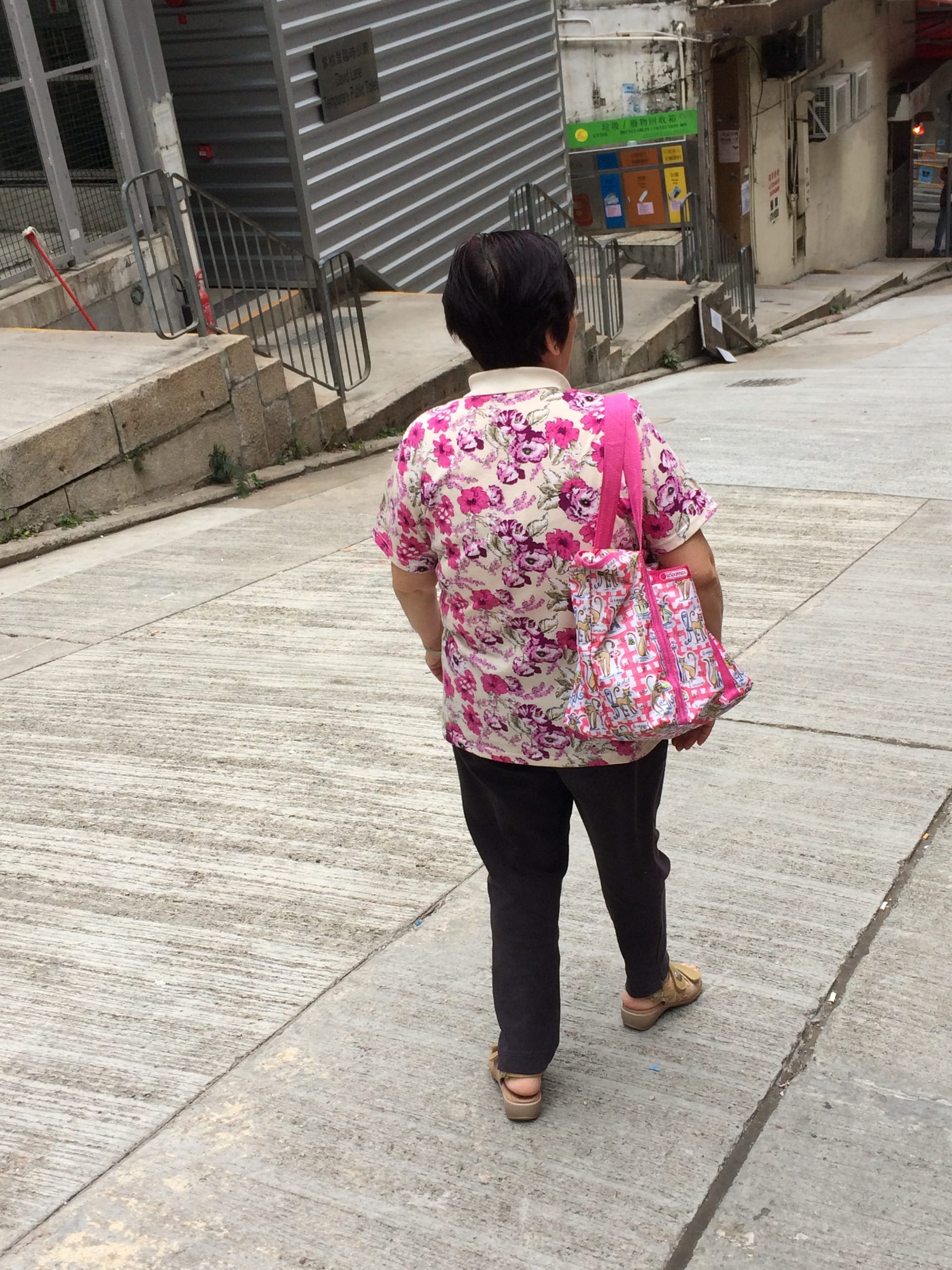
That being said, were you to fancy a first-rate milk tea, a stop at Kam Fung Restaurant on Spring Garden Lane in Wan Chai, a cha chan teng institution, would be a suitable choice. And, were I pressed—but if and only if I were pressed, mind you, dear Subscriber—to suggest a thoroughfare that doubles as a catwalk for the elderly, I would faintly utter (as befits a pressed man) ‘Des Voeux Road West—sometime during the morning hours.’ There and then you can find not only po pos but also gong gongs (公公), or grandpas, both of which might very well be on their way to, or coming from, my favourite place for yum cha, Lin Heung Kui—the smaller, neighbourhood version of the famous Lin Heung Lau on Wellington Street in Central. Alas, however, I have just learned that Lin Heung Kui has closed its doors permanently, so there is no longer any point in telling you where to find the tiny dishes of Yu Kwen Yick chili sauce to accompany the chun geun (crispy fried spring rolls). In due course, I shall pay it homage, but for now, let it suffice to say that it was a wonderful place to see old Hong Kong in action—old in more than one sense of the word: here was classic yum cha culture and it was substantially made up of older people. A sizeable percentage of the customers at this Sheung Wan location was elderly, and the floor staff—from the stoical waiters to the women who pushed the trolleys with stacks of snacks—were perhaps only a shade younger.
Still, as Alexander Graham Bell said, when one bamboo steamer basket closes, another opens, and it turns out that the original Lin Heung Lau is, after several years shuttered, once again in operation. I must admit, however, that I never liked this location for yum cha. Raucous, too much jostling, a destination for visitors looking to get the intense dim sum experience. I simply seek a pleasant place to start the day by drinking tea, eating more than a few morsels, catching up with a couple of fellow regulars, cordially meeting Hong Kongers or travelers. Now, I am willing to box out and parry away up to three on-comers out to usurp the fresh fu pei geun (steamed tofu skin rolls) that are my birthright. The hungry horde at Lin Heung Lau, however, exceeds this limit. Dinner here is enjoyable, but you need a party of four at least, and the more the tastier. If the conversation turns boring, you can always direct your attention to the eight treasure duck. Really, unless you are amid scintillating wits, it is best to direct your attention to the eight treasure duck. Even then, etc.
* * *
Writing about po po couture has led me to think: For so long in life we have to cover up; what a relief it must be not to give a fig. This thought, in turn, put me in mind of a poem, Jenny Joseph’s “Warning” (1961). You can read it here. And you can listen to Jenny Joseph herself reading the poem here.
If you fancy, you can amble through it with me. The speaker begins to detail her plans in the first stanza:
When I am an old woman I shall wear purple
With a red hat which doesn’t go, and doesn’t suit me.
And I shall spend my pension on brandy and summer gloves
And satin sandals, and say we’ve no money for butter.
I shall sit down on the pavement when I’m tired
And gobble up samples in shops and press alarm bells
And run my stick along the public railings
And make up for the sobriety of my youth.
I shall go out in my slippers in the rain
And pick flowers in other people’s gardens
And learn to spit.
One can be prim and proper for only so long before fantasies of a freewheeling future self—grandma gone wild—will take shape. The examples of senescent id start off rather adorably: donning clashing colours and an unflattering hat, an excursion into po po couture. Yet it soon becomes clear that she desires to be self-indulgent and even a little rude to others. The lifelong pressures of etiquette create the conditions for a return of the repressed. The stiff upper lip joins the lower, presses tighter, and out comes the tongue to blow a raspberry.
In the next patch of verse, the speaker thrills at the prospect of excess and eccentricity, the sheer willfulness that old age is permitted:
You can wear terrible shirts and grow more fat
And eat three pounds of sausages at a go
Or only bread and pickle for a week
And hoard pens and pencils and beermats and things in boxes.
Soon, however, she returns to present reality, with its responsibilities and demands of self-restraint:
But now we must have clothes that keep us dry
And pay our rent and not swear in the street
And set a good example for the children.
We must have friends to dinner and read the papers.
Nonetheless, the reverie of geriatric licence remains tantalising and she thus concludes with a sly and wry consideration:
But maybe I ought to practise a little now?
So people who know me are not too shocked and surprised
When suddenly I am old, and start to wear purple.
I discovered this poem in a book shop sometime in the aughts when a title on display caught my eye: When I am an Old Woman I Shall Wear Purple, an anthology of poetry, short stories, and black-and-white photographs about old women. The cover featured a warm image of one such woman, serenely happy, lightheartedly wise—“Laughing Rose,” one of Deidre Scherer’s thread-on-fabric works. I opened the volume and read the first piece, Joseph’s “Warning,” then her foreword to the book, where she explains what informed the poem. At least some inspiration was found in “the raw life outside language,” in the kind of observation that we at Zuihitsu welcome:
It came from years of idling, of walking round towns looking at the streets and people in them and wondering what they were really thinking; it came from sitting on benches in parks with nothing to do and noticing the inhabitants, listening to people talking to themselves or others on the tops of buses.
“Warning” was voted Great Britain’s favourite post-war poem in 1996 and favourite modern poem in a 2006 BBC poll. It has resonated deeply because it gives voice to our loose-letting wishes, expresses the discontent of the civilised. And it has resonated widely because of Joseph’s memorable wit, reminiscent of Wendy Cope’s and Dorothy Parker’s. Since reading the poem in the book shop, and since taking note of the po po style, from time to time I think that it actually might be decorous to “practise a little now” the offbeat, the outré, and the silly. After all, it is our whole life, not just our dotage, that can look and feel like folly.

Organisations
Jenny Joseph’s “Warning” inspired the international Red Hat Society, a sororal group for women over 50 (but also including those under) devoted to the pursuit of élan and going, as the British Red Hatters put it, “wherever our hearts want to go.” These ladies cultivate the art of “grow[ing] old disgracefully.” The organisation began in the U.S. in 1998 and has over 100 chapters internationally. The U.S. Red Hat Society is based in Fullerton, California.
Recommended literary works in English about growing old or the elderly
Poetry:
Billy Collins, “Forgetfulness” (1990)
Langston Hughes, “Mother to Son” (1922)
Philip Larkin, “The Old Fools” (1973) (Read by Tom O’Bedlam, with text)
Memoir:
Philip Roth, Patrimony: A True Story (1991)
Drama:
William Shakespeare, King Lear (1608)
Novel:
Muriel Spark, Memento Mori (1959)
Anthology:
When I am an Old Woman I Shall Wear Purple, edited by Sandra Haldeman Martz and published by Papier-Mache Press (second edition, 1991), contains many poignant short works, including Karen Brodine’s “Here, Take My Words” and Elizabeth Bennett’s “The Trouble was Meals.” My only complaint is that the chosen photographs do not complement the writing, and their poor placement in relation to particular pieces exacerbates the incongruity.

